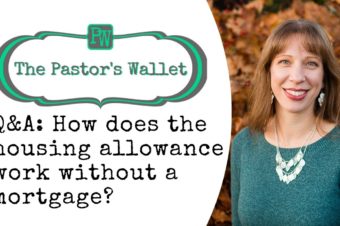
A look at what a reverse mortgage is, how do they work, and when they would be used. Then, do they really deserve the terrible reputation that they have?
Who is right, Dave Ramsey or Magnum, P.I.? Dave rails against reverse mortgages on a regular basis and Magnum, or more accurately, actor Tom Selleck, sells them. Instead of just taking some celebrity’s word for it, let’s take a look at what reverse mortgages are all about before forming our own opinions.
What Is A Reverse Mortgage & How Does It Work?
Most of us know what a mortgage is, a loan taken out to purchase a home. But what about a reverse mortgage? Luckily, whoever named it was left-brained, definitely not a creative type. It is just as it sounds.
With a traditional mortgage, you send money to the lender and your debt, which is secured by your house, decreases. With a reverse mortgage, the lender sends you money and your debt, still secured by your house, increases.
Most reverse mortgages are offered through the Home Equity Conversion Mortgages (HECM) program, which is administered by the Housing and Urban Development Department (HUD) and the Federal Housing Authority (FHA).
Qualifications
Reverse mortgages are not available to the general public. They were designed to provide retirement income to seniors, and are therefore limited to people age 62 and above. Here are the qualifications for taking on a reverse mortgage:
- Be at least 62 years old (both parties on the title)
- Own your home
- Have equity in the house to pay off any outstanding balances
- Your home must be your principal residence
- Meet minimum income and credit requirements
- The home must be: single family, FHA-approved condo, townhouse, planned unit development, or 2-4 unit property
The borrow is also responsible for keeping current with property taxes, homeowners insurance, maintenance, and any homeowners association fees. Failure to do so could result in the loan being called, meaning it would have to be paid back immediately in full.
Calculations
The amount of money you can get with a reverse mortgage is calculated based on age (of the youngest homeowner), current interest rate, the appraised value of the home, and government-imposed lending limits. The current home value limit in 2018 is $679,650. If you’re curious about what kind of reverse mortgage you could get, there are a lot of online calculators you can use. I went ahead and played with this one.
I pretended to be 62 and wanting a $50,000 line of credit on a $300,000 home with a $150,000 current mortgage. In total, it would cost me $13,016 in fees. That total is comprised of a $5,000 loan origination fee, $6,000 mortgage insurance, and $2,016 in “other closing costs.” When I requested the same line of credit for a $500,000 home with the same 50% equity, the fees were over $5,000 higher.
Payments
According to HUD, reverse mortgages can be paid out in several different ways:
- Tenure– Equal monthly payments as long as at least one borrower lives and continues to occupy the property as a principal residence.
- Term– Equal monthly payments for a fixed period of months.
- Line of Credit– Unscheduled payments or in installments, at times and in an amount of your choosing until the line of credit is exhausted.
- Modified Tenure– A combination of Line of Credit and Tenure.
- Modified Term– A combination of Line of Credit and Term.
It is important to note that while payments do not usually affect Social Security, that is not always the case. Supplemental Security Income (SSI) and state benefits like Medicaid can also be affected by reverse mortgage payments.
Repayment
The loan becomes due when any of the following occur:
- The last remaining borrower sells the property
- The last remaining borrower moves out of the home for 12 months or longer
- The last remaining borrower passes away
If only one spouse is a borrower on the loan and passes away, the loan becomes due even if the other spouse is still alive. Once all borrowers pass away, the heirs have 6 months to settle the balance on the loan.
Benefits Of Reverse Mortgages
There are some obvious benefits to reverse mortgages. They are a way for seniors who are “house rich and cash poor” to tap into their home’s equity without having to move. In a lot of cases, retirees do not have sufficient income to take out other kinds of loans, such as a Home Equity Line Of Credit (HELOC), and would otherwise have to sell their home to access the equity.
Even if house values tank, as they did 10 years ago, a borrower will never owe more than the value of their property with a reverse mortgage (which is why you have to pay for mortgage insurance). The home is the only personal asset that must be used to repay the loan and the borrower will never be kicked out because the loan balance has gone above the home value.
What Is Wrong With Reverse Mortgages?
The main argument against reverse mortgages is the cost. And as you can see from my calculations above, it is well-founded. For my $50,000 line of credit, though the actual interest rate was around 4% to 5.5%, the fees were $13,016. That’s over 26%!
Reverse mortgages pay very high commissions (which is why the fees are so high), so they can attract some of the most unsavory salespeople. Sometimes life insurance salespeople will even trick people into taking out a reverse mortgage in order to pay for a large life insurance policy. You have to be really careful who you trust when it comes to reverse mortgages.
So, Are They Really Evil?
A reverse mortgage is a tool, just like a hammer. It is amoral. A hammer can be overpriced or used to beat someone over the head or used to build homes for the poor and needy. Reverse mortgages can likewise be used well or inappropriately.
For senior citizens needing cash, they are an option. Often the only other option is selling the home and downsizing, renting, moving in with family, or moving to a lower cost-of-living area. The right choice will depend upon each person’s unique needs and priorities.
Dave Ramsey hates them because he thinks they are a rip-off and he hates debt. Magnum, P.I. loves them because he gets paid to sell them. So, whose side are you on, Dave Ramsey or Magnum, P.I.?


![[Video] Q&A: Do Additional Principal Payments Qualify for the Housing Allowance?](https://pastorswallet.com/wp-content/uploads/2022/03/Copy-of-Do-Pastors-Really-Have-to-Pay-15.3-for-SECA-340x226.jpg)
